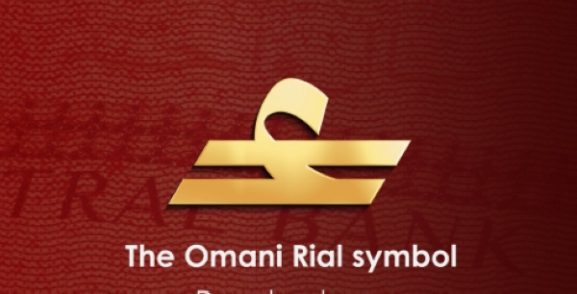کاهش چکهای برگشتی در عمان: این موضوع چه تاثیری بر اعتماد تجاری و ثبات مالی دارد؟
مسقط، ۲۴ سپتامبر - طبق اعلام بانک مرکزی عمان (CBO)، میزان چکهای برگشتی که به عنوان چکهای بیمحل یا چکهای معوق نیز شناخته میشوند، همچنان رو به کاهش است که نشاندهنده کاهش ریسک پرداخت است.
دفتر بودجه کنگره (CBO) در گزارش ثبات مالی 2025 که اخیراً منتشر شده است، اعلام کرد که در سال 2024، در مجموع 311764 چک برگشت خورده و پرداخت نشده است که نسبت به 362072 چک در سال 2023، کاهشی 13.89 درصدی را نشان میدهد. نسبت چکهای پرداخت نشده به کل چکهای ارائه شده برای تسویه نیز کاهش یافته و به 8.9 درصد از 3.5 میلیون چک در سال 2024 رسیده است که نسبت به 9.8 درصد از 3.7 میلیون چک در سال قبل، کاهش یافته است. این گزارش این بهبود را به کنترلهای پیشرفته و سلامت مالی قویتر نسبت میدهد.
دفتر بودجه مرکزی (CBO) خاطرنشان کرد که روند کاهشی چکهای پرداخت نشده، نشاندهنده بهبود قابلیت اطمینان پرداخت و انضباط مالی بیشتر است. با این حال، افزایش جزئی در خطاهای فنی مانند چکهای بیاعتبار و پرداختهای زودهنگام را برجسته کرد که نشاندهنده حوزههایی است که نیاز به بهبود بیشتر در کارایی سیستم پرداخت دارند.
تعداد کل چکهای ارائه شده برای تسویه نیز ۶ درصد کاهش یافت و از ۳.۷ میلیون در سال ۲۰۲۳ به ۳.۵ میلیون در سال ۲۰۲۴ رسید که نشاندهنده تغییر مداوم به سمت تراکنشهای دیجیتال است.
کمبود موجودی همچنان علت اصلی برگشت چکها بود، اما در سال ۲۰۲۴ کاهش قابل توجه ۱۲.۲ درصدی را تجربه کرد که نشاندهنده مدیریت بهتر موجودی حساب و کاهش اتکا به چک است.
کاهش قابل توجهی در چکهای برگشتی به دلایل دیگر نیز مشاهده شد: موارد «ارجاع به صادرکننده» ۴۳.۷ درصد کاهش یافت، موارد «پرداخت متوقف شده/پرداخت در انتظار تأیید متوقف شده» ۴۱.۹ درصد کاهش یافت و برگشتیها به دلیل «بسته/مسدود شدن حساب» ۲۹.۱ درصد کاهش یافت. این بهبودها نشاندهنده افزایش تعامل بانک و مشتری و کاهش حسابهای غیرفعال یا رها شده است.
بانک مرکزی کاهش چکهای پرداخت نشده را تا حدودی به تقویت چارچوبهای تسویه چک که توسط موسسات مالی اجرا میشود، نسبت داد. افزایش پذیرش پرداختهای دیجیتال و تقویت شیوههای انطباق، کارایی پرداخت را بیشتر افزایش داده است. با مدیریت مؤثرتر حسابها توسط مشتریان، انتظار میرود میزان چکهای برگشتی به دلیل موجودی ناکافی همچنان کاهش یابد.
در سومین جلسه هیئت مدیره در سال گذشته، CBO علاقه خود را به اتخاذ «سیستم پرداخت جزئی برای چکها» ابراز کرد. این سیستم به بانکها اجازه میدهد تا چکها را به میزان مبلغ موجود در حساب صادرکننده، به جای رد کامل چک، پرداخت کنند. بانک مرکزی توضیح داد که تحت این طرح، در صورت عدم وجود کل مبلغ، چک دیگر برگشت نمیخورد، زیرا بانکها مبلغ جزئی را پرداخت میکنند، مگر اینکه دارنده چک تصمیم به رد پرداخت جزئی بگیرد.
این تحولات، نشاندهندهی مسیری مثبت به سوی سیستمهای پرداخت قابل اعتمادتر و ثبات مالی بیشتر در عمان است.
تحلیل ویژه از عمانت | بازار عمان را کشف کنید
کاهش مداوم چکهای برگشتی، خبر از ... میدهد. بهبود نظم مالی و اطمینان از پرداختها در عمان، کاهش خطرات برای کسبوکارهایی که به تراکنشهای مبتنی بر چک متکی هستند. تغییر به سمت پرداختهای دیجیتال و چارچوبهای انطباق پیشرفته فرصتی حیاتی برای کارآفرینان و سرمایهگذاران فراهم میکند تا از کانالهای پرداخت کارآمدتر و امنتر استفاده کنند. بازیگران هوشمند باید روی ... تمرکز کنند. راهکارهای مالی دیجیتال و نظارت بر سیاستهای در حال تحول چک مانند سیستم پرداخت جزئی برای پیشتاز ماندن در بازار.



